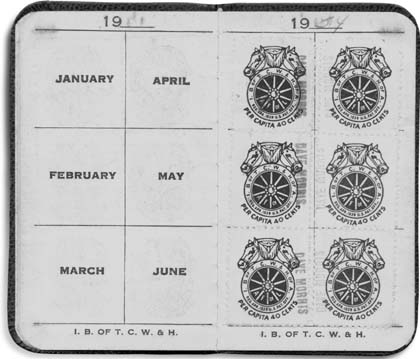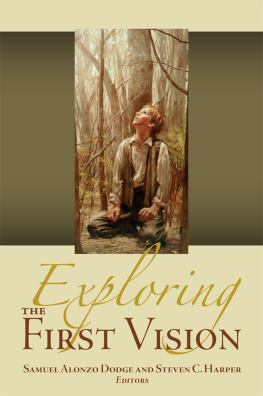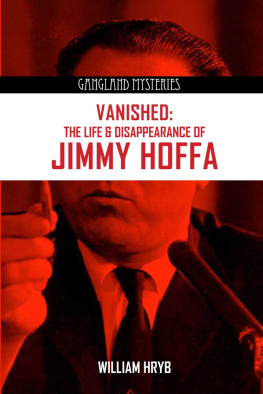Steven J. Harper - Crossing Hoffa
Here you can read online Steven J. Harper - Crossing Hoffa full text of the book (entire story) in english for free. Download pdf and epub, get meaning, cover and reviews about this ebook. year: 2009, publisher: Minnesota Historical Society Press, genre: Detective and thriller. Description of the work, (preface) as well as reviews are available. Best literature library LitArk.com created for fans of good reading and offers a wide selection of genres:
Romance novel
Science fiction
Adventure
Detective
Science
History
Home and family
Prose
Art
Politics
Computer
Non-fiction
Religion
Business
Children
Humor
Choose a favorite category and find really read worthwhile books. Enjoy immersion in the world of imagination, feel the emotions of the characters or learn something new for yourself, make an fascinating discovery.

- Book:Crossing Hoffa
- Author:
- Publisher:Minnesota Historical Society Press
- Genre:
- Year:2009
- Rating:5 / 5
- Favourites:Add to favourites
- Your mark:
- 100
- 1
- 2
- 3
- 4
- 5
Crossing Hoffa: summary, description and annotation
We offer to read an annotation, description, summary or preface (depends on what the author of the book "Crossing Hoffa" wrote himself). If you haven't found the necessary information about the book — write in the comments, we will try to find it.
Crossing Hoffa — read online for free the complete book (whole text) full work
Below is the text of the book, divided by pages. System saving the place of the last page read, allows you to conveniently read the book "Crossing Hoffa" online for free, without having to search again every time where you left off. Put a bookmark, and you can go to the page where you finished reading at any time.
Font size:
Interval:
Bookmark:
Crossing
HOFFA
A TEAMSTER'S STORY
STEVEN J. HARPER

Borealis Books is an imprint of the Minnesota Historical Society Press.
www.borealisbooks.org
2007 by Steven J. Harper. All rights reserved. No part of this book may be used or reproduced in any manner whatsoever without written permission, except in the case of brief quotations embodied in critical articles and reviews. For information, write to Borealis Books, 345 Kellogg Blvd. W., St. Paul, MN 55102-1906.
The Minnesota Historical Society Press is a member of the Association of American University Presses.
Manufactured in the United States of America
10 9 8 7 6 5 4 3 2
 The paper used in this publication meets the minimum requirements of the American National Standard for Information SciencesPermanence for Printed Library Materials, ANSI Z39.48-1984.
The paper used in this publication meets the minimum requirements of the American National Standard for Information SciencesPermanence for Printed Library Materials, ANSI Z39.48-1984.
International Standard Book Number 13: 978-0-87351-580-1 (cloth)
International Standard Book Number 10: 0-87351-580-3 (cloth)
Library of Congress Cataloging-in-Publication Data
Harper, Steven J., 1954
Crossing Hoffa : a Teamster's story / Steven J. Harper.
p. cm.
Includes bibliographical references.
ISBN-13: 978-0-87351-580-1 (cloth : alk. paper)
ISBN-10: 0-87351-580-3 (cloth : alk. paper)
Ebook ISBN: 978-0-87351-730-0
- Harper, James Henry, 1928
- Hoffa, James R. (James Riddle), 1913
- International Brotherhood of Teamsters, Chauffeurs, Warehousemen and Helpers of America. Minneapolis. Local 544.
- Labor unionsMinnesotaMinneapolis.
- Labor unionsCorrupt practicesMinnesotaMinneapolis.
I. Title.
HD6519.M62I584 2007
331.88811388324092dc21
[B] 2007000399
PICTURE CREDITS
pages 5, 6, 28, 49, 131, 164: Harper collection
pages 14, 53, 54: Star Tribune/MinneapolisSt. Paul
pages 38, 39: courtesy The Angolite
page 69: courtesy Robert Gabrick
page 97: TIME Magazine 1959 Time Inc. Reprinted by permission
For Kit: Everyone has a story
She and our children have been mine
Epilogue
IT WAS TIME FOR ME TO OPEN THE BOX.
Less than an hour earlier, in the predawn December darkness that enveloped Chicago, my father, James Henry Harper, had died in his home at the age of seventy-three. When he had begun his battle with cancer two years earlier, his handsome six-foot frame had carried about 170 pounds. My father had always disdained his physical appearance, but he was truly proud to have retained a relatively full head of hair. The tight black curls that were the curse of his youth relaxed just enough in later years to create silver waves that distinguished him. He regularly flashed a warm, broad grin that squeezed the corners of his lively blue eyes into a squint behind his bifocals. When he laughedwhich was oftenthe effect was deep, sustained, and infectious. For the last decade of his life, that laugh usually transitioned into a smokers cough. Sixty years of smoking Camel cigarettes will do that to a person.
My parents had lived together in a small, brick ranch house near the end of a cul-de-sac. During my fathers final eighteen months, the dominant item of furniture in the living room was the mechanized bed that wed acquired after the surgical removal and reconstruction of his esophagus. His most frequent trips from his new bed terminated at the La-Z-Boy recliner about three feet away; he took those journeys less often during his final days. Next to the recliner stood a floor lamp with a flat surface just large enough to hold a glass of water, a small disposable cigarette lighter, his open pack of Camels, an unopened pack lying faithfully in ready reserve, and a half-consumed bottle of Snapple Iced Tea. He hated iced tea and never drank it, but the bottle served as the receptacle for his cigarette butts, which floated there until someonenever Dadliberated them into a garbage can.
Next to the lamp was a chest of drawers upon which a metal safekeeping box rested. Latched and secured with a miniature padlock, it lay within easy reach of his recliner, which for his grandchildren had become the seat of all wisdom. As he spoke with them, he sometimes opened the metal box and leafed through its contents. Only rarely did he remove an item for brief inspection or display, and he always returned it when he finished. No one really knew the complete contents of what he called his treasure chest.
As his oldest son and the familys only lawyer, I was now responsible for handling the legal aftermath of his death. As I sat in his recliner and slowly unclipped the lock from the box, I realized that it almost certainly contained symbolic milestones of his life. He knew I would be the first to open the box upon his death because I would need his birth certificate for the funeral director. He had told me that the certificate was in the box. I drew a deep breath and opened it slowly. With ceremonial care, I lifted each item as if it were a museum piece:
- His 1928 birth certificate, as promised.
- My mothers 1935 birth certificate.
- His 1948 army discharge papers.
- A certified copy of the 1950 court order dissolving his short-lived first marriage, to his high school sweetheart.
- A series of 1960 letters between my father, the Louisiana State Board of Pardons, and the states attorney general. Relating to my fathers 195152 imprisonment at Angola, an episode so horrendous he was sure its scars would endure for generations, the letters discussed his Pardon, with Full Restoration of Citizenship, a document that had become trapped somewhere in the Bayou States bureaucracy.
- His 1953 marriage certificate signed by his new father-in-law, who had conducted the wedding ceremony in the Mankato, Minnesota, Lutheran church where he was the senior pastor.
- Copies of birth certificates for me, my two younger sisters, and my younger brother.
- Two handmade Fathers Day cards from my sistersdates unknown, but certainly works from their early childhood.
- A boyhood note from my brother, thanking my father for taking care of him.
- A key case I had made during my Leathercraft Kit period at the age of thirteen. I smiled as I remembered that everybody in the family received a leather something from me that Christmas.
But four other items in the box puzzled me.
- A union dues booklet, fifty years old. The 3- by 2- inch ledger recorded James Harpers July 20, 1954, initiation as a member of the International Brotherhood of Teamsters, Chauffeurs, Warehousemen and Helpers, Local 544 in Minneapolis, Minnesota. Several fragile pages filled with postage-like stamps bore the ink imprint Dave Morris and confirmed my fathers status as a Teamster in good standing for every month that he had paid his dues. Dave Morris was a name that I remembered.
- His 1956 and 1957 Teamsters identification cards, signed by Sidney Brennan as secretary-treasurer of Local 544. Id never heard of Brennan.
- His 1961 Teamsters identification card, this one signed by Fred V. Snyder, who replaced Brennan as secretary-treasurer and became my dads mortal enemy in 1959. From my early childhood, his name had been synonymous with evil.
The last discoveries were remarkable. Why had he kept these artifacts? My father hadnt been a Teamster for forty years. I sat back in his recliner and closed my eyes as memories flooded my mind, entire scenes from my childhood emerging in vivid detail.

Font size:
Interval:
Bookmark:
Similar books «Crossing Hoffa»
Look at similar books to Crossing Hoffa. We have selected literature similar in name and meaning in the hope of providing readers with more options to find new, interesting, not yet read works.
Discussion, reviews of the book Crossing Hoffa and just readers' own opinions. Leave your comments, write what you think about the work, its meaning or the main characters. Specify what exactly you liked and what you didn't like, and why you think so.


